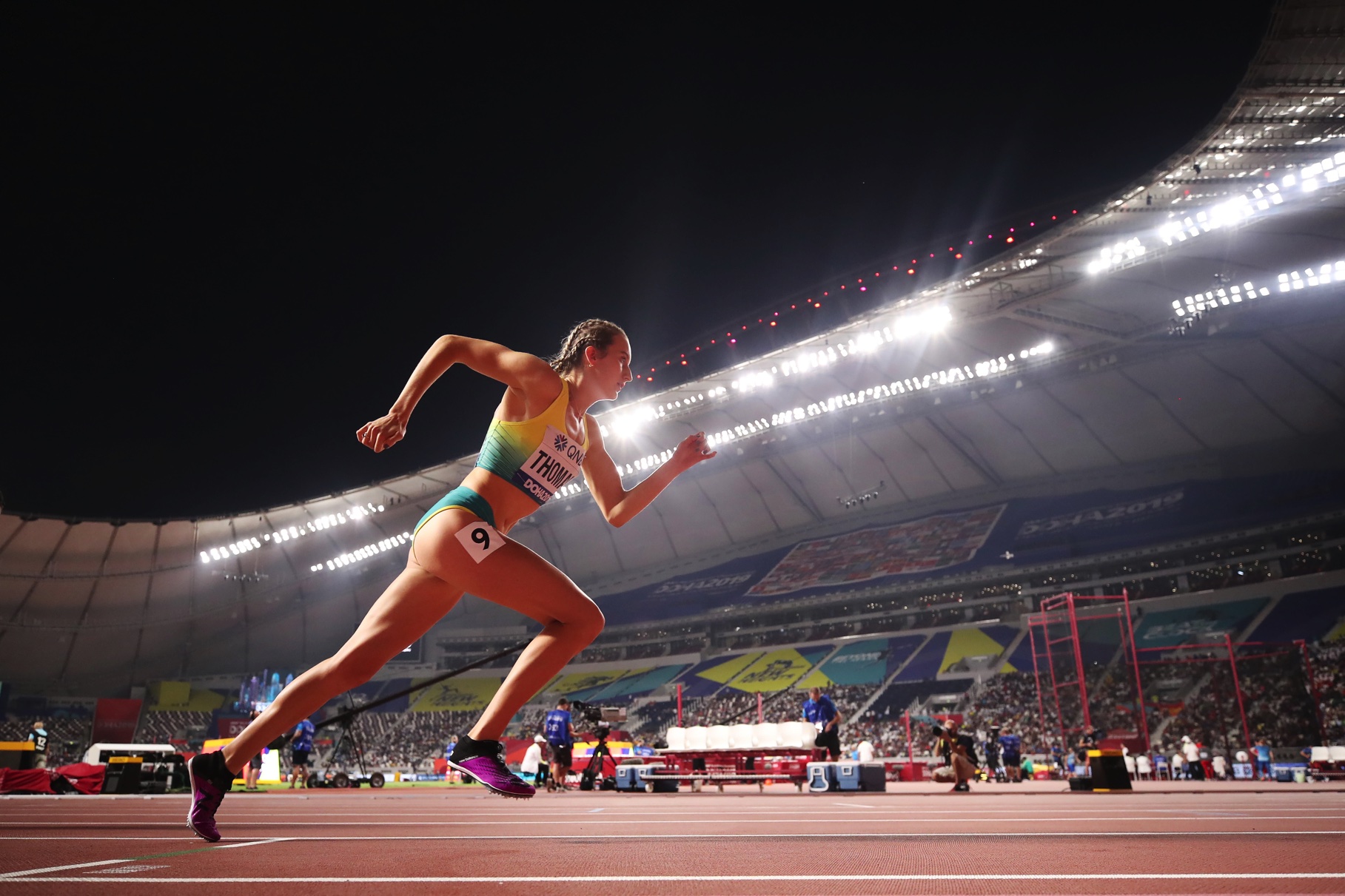Many tried. Only a handful succeeded.
Context is everything. One day you’re writing that one good thing about the first day is that you get to see every competitor in the day’s heats and qualifying rounds, even if they’re not yet going head-to-head; the next, you’re hit by the painful realisation that while this might be true in general that doesn’t mean it’s true in every case.
Day one of these world championships was not a great one for Australia. Fortunately, there were brighter spots among the gloom, but too many came in and then went straight out again. Some of these were known to be up against it, some did not live up to expectations – ours and, I suspect, probably theirs as well.

None of Australia’s three long jumpers got through qualifying. Tim Forsyth once described qualifying rounds as something not to be looked forward to – “like a visit to the dentist,” was the comparison. In that case, Henry Frayne, Darcy Roper and Henry Smith must have been booked in for root canal surgery.
Frayne went closest, finishing thirteenth overall in the two pools with just the best 12 going through. Close as dammit is not close enough. Frayne opened with a distance that briefly flashed up on the graphic as 7.94 – if I read it right from my vantage point way over the other side of the huge Khalifa International Stadium, but he had fouled, another graphic informed us, by all of four centimetres. Either 7.94 or 7.90 would have seen him through to the final.
Roper was just four centimetres and two places behind – so two top sixteens, then, while Smith, who got stuck around the 7.50-mark, had a competition to forget.
So far, so not-so-great. Things didn’t get appreciably better. Catriona Bisset and Carley Thomas were both run out; so, too, were Paige Campbell and Georgia Winkcup in the steeple, Morgan McDonald and Patrick Tiernan in the 5000 and Rohan Browning in the 100. Nicola McDermott, Alysha Burnett didn’t get through high jump qualifying, nor did Elizaveta Parnova in the pole vault..
Bisset’s result will hurt especially, her just as much as anyone else. It followed a year of ever-rising expectations, again hers as well as ours. A year that began with her aiming, at best, at the World University Games, has ended with a sub-two at the Australian University championships, a gold medal at the World Unis and the breaking of Charlene Rendina’s national record which stretched back to 1976. Go back to January, and Bisset would have settled for that, but there will be disappointment about the way her season has ended. Still, she is well placed for Tokyo 2020.
The bright spots were Morgan Mitchell in the 800, Genevieve Gregson in the steeple and Stewart McSweyn in the 5000 all of whom came through.
Genevieve Gregson leads the way for Australia at the IAAF World Championships in Doha
Mitchell has had almost as long a season as Bisset but managed to find the strength over the closing stages to run down a couple in front of her and grab the crucial third spot, and automatic qualifying, for the semi-finals. It was the Mitchell we saw in the 400 a few years ago, not bursting past opponents, just grinding them slowly into the ground all the way up the final straight.
Gregson has spent great parts of this year in pools, in the gym or in rehab. As we’ve seen since she fought her way into the London 2012 Olympic team, however, Gregson is nothing if not resilient. Only three athletes in each of the three steeple heats were to go through to the final automatically. Gregson almost grabbed third place, but her time was fast enough to advance as one of the next six fastest.
McSweyn ran a sensible heat in the 5000 metres. Not over-aggressive in the early stages, he just kept on improving with each lap before finishing fourth and going on to the final as one of the five automatic qualifiers.
Though ultimately run out, McDonald and Tiernan could easily have joined him. Each remained in contention until the final lap of the first heat before McDonald finished seventh and Tiernan ninth as the leading bunch of 11 at the bell fought out the crucial top five places.
Such bright spots enlivened what was a pretty dark day for Australia on day one in Doha.
https://www.instagram.com/p/B28Xr9Cg88l/




